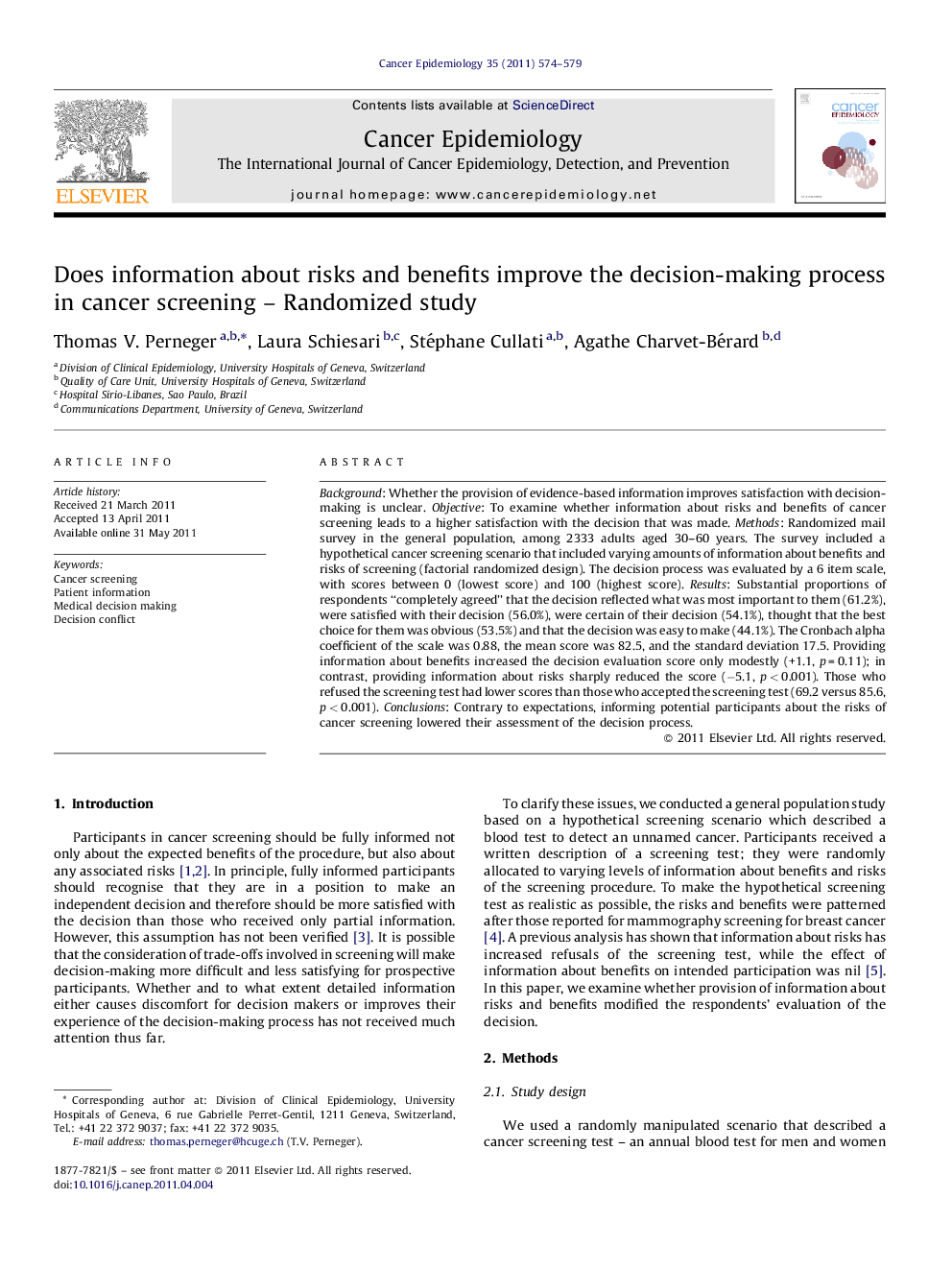| Article ID | Journal | Published Year | Pages | File Type |
|---|---|---|---|---|
| 10897579 | Cancer Epidemiology | 2011 | 6 Pages |
Abstract
Background: Whether the provision of evidence-based information improves satisfaction with decision-making is unclear. Objective: To examine whether information about risks and benefits of cancer screening leads to a higher satisfaction with the decision that was made. Methods: Randomized mail survey in the general population, among 2333 adults aged 30-60 years. The survey included a hypothetical cancer screening scenario that included varying amounts of information about benefits and risks of screening (factorial randomized design). The decision process was evaluated by a 6 item scale, with scores between 0 (lowest score) and 100 (highest score). Results: Substantial proportions of respondents “completely agreed” that the decision reflected what was most important to them (61.2%), were satisfied with their decision (56.0%), were certain of their decision (54.1%), thought that the best choice for them was obvious (53.5%) and that the decision was easy to make (44.1%). The Cronbach alpha coefficient of the scale was 0.88, the mean score was 82.5, and the standard deviation 17.5. Providing information about benefits increased the decision evaluation score only modestly (+1.1, p = 0.11); in contrast, providing information about risks sharply reduced the score (â5.1, p < 0.001). Those who refused the screening test had lower scores than those who accepted the screening test (69.2 versus 85.6, p < 0.001). Conclusions: Contrary to expectations, informing potential participants about the risks of cancer screening lowered their assessment of the decision process.
Related Topics
Life Sciences
Biochemistry, Genetics and Molecular Biology
Cancer Research
Authors
Thomas V. Perneger, Laura Schiesari, Stéphane Cullati, Agathe Charvet-Bérard,
